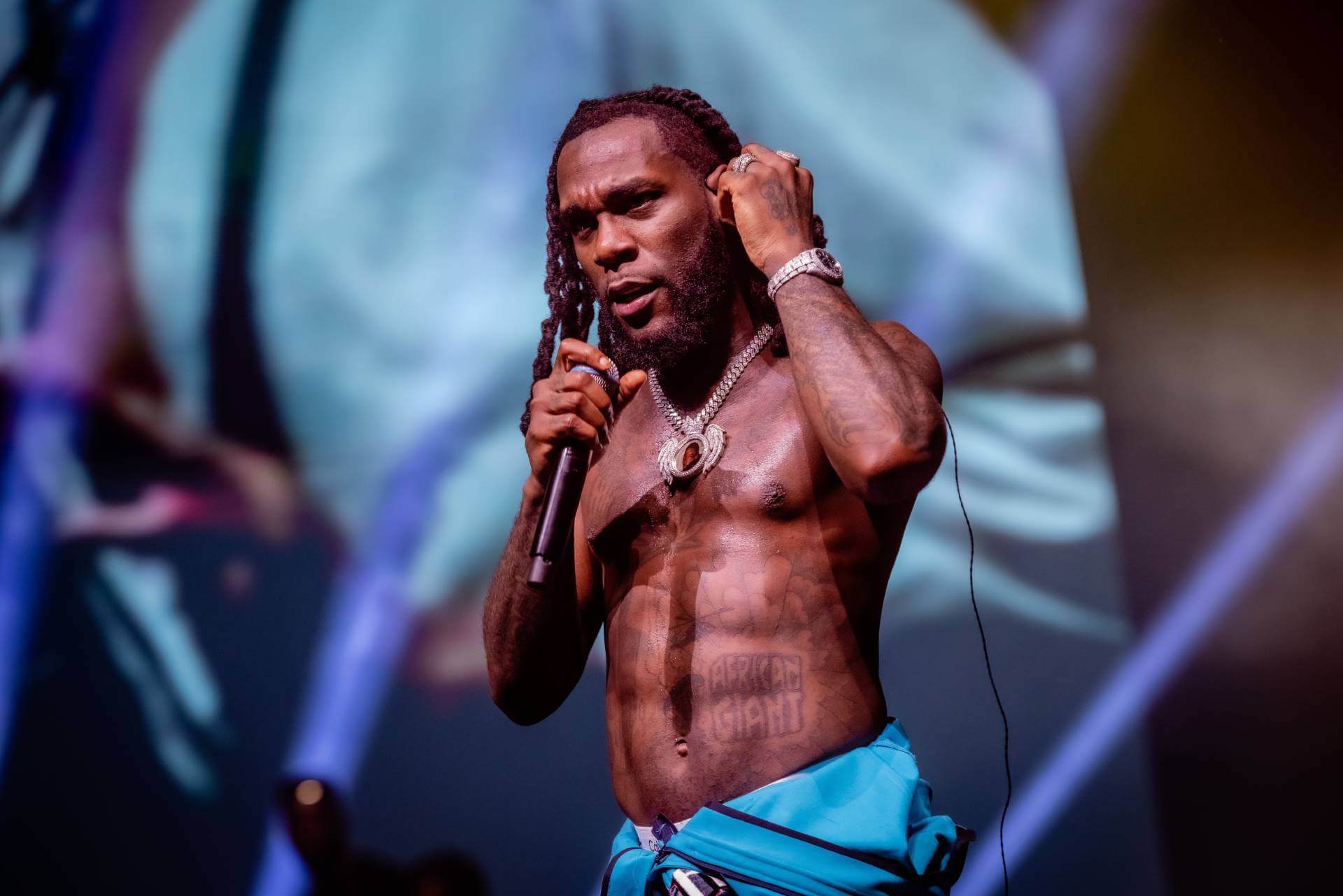The 2020’s decade is already well underway, and with it a cultural movement of epic proportions has emerged from the African continent. It iss redefining not only the music landscape but even the political one. The resounding melodies of Afrobeats have transcended the barriers of language and geography. Listeners from around the world are tuning into this African genre, ushering in a kind of musical diplomacy.
Singers like Ayra Starr, with her soulful voice and introspective lyrics, King Promise, with his silky-smooth melodies, and the incomparable Burna Boy, whose Afro-fusion mastery knows no bounds, have captivated global audiences. Their popularity has spread to countries such as the United Kingdom, Portugal, and the United States. Worldwide streams amounted to 13.5 billion in 2022.
Afrobeats, from the rich musical heritage of Africa, fuses traditional rhythms with modern influences to create an irresistible tapestry of sound. With roots that stretch across the continent, Afrobeats encapsulates the vibrancy of Ghana’s Highlife — a genre that combines elements of rock and jazz — and the pulse of West African percussion from neighboring countries.
Music with a message
Afrobeats conveys messages of African liberation and culture. Songs like “Zombie” by Fela Kuti critique oppressive regimes, while “African Giant” by Burna Boy celebrates African resilience and unity. “Jerusalema” by Master KG (featuring Nomcebo Zikode), though not strictly Afrobeats as it also borrows from gospel-house, became a global anthem of hope during the COVID-19 pandemic. This musical renaissance has united Africa, reclaiming its narrative and breaking free from the chains of colonial history. Afrobeats artists shed light on the beauty of Africa and the African experience. They also challenge stereotypes, such as the idea that hip-hop has negative influences on youth.
Emerging artist Ayra Starr‘s profound voice captures the complexity of young adulthood, offering solace to a generation navigating their identities. Africa is, after all, the youngest continent in the world. Starr expresses that with confidence anything is possible for young people, even the unimaginable. In her song “Sability,” she sings, “Espiritu Fortuna, I go make you jo dada, shey you getty the power, sweety passy amala ketu.” In other words, “we are blessed beyond our knowledge to make any of our dreams come true.” In her lead single “Bloody Samaritan,” Starr dismisses those who underestimate her because of her age and gender, reiterating that change can be made at any age, sector, and in any region of the globe.
Hailing from Ghana, King Promise has already etched his name in the annals of Afrobeats history with his melodic prowess. His dulcet tones dance over Highlife-infused rhythms, creating a signature sound that radiates joy and nostalgia. Promise’s rise exemplifies the genre’s power to forge connections, both within and beyond borders, while recognizing the vast culture of Africa. His popular songs, such as “CCTV,” “Terminator,” and “Selfish,” not only showcase King Promise’s musical talent but also resonate with diverse audiences. Through these tracks, he infuses elements of traditional African sounds with modern beats, creating a unique sonic experience that celebrates the continent’s rich musical heritage and helps break stereotypes.
A conversation about celebrating cultural heritage would be remiss without paying homage to Burna Boy. His ascent from the streets of Port Harcourt to the Grammy Awards is a testament to the Afrobeats’ transformative impact. Burna Boy’s genre-bending and socially conscious Afro-fusion lyrics have redefined modern African music. Songs such as “Different” speak of the joy and uniqueness each country has in identifying as African. Unapologetic anthems like “Another Story” and “African Giant” touch on shifting from false narratives (i.e., colonialist perspectives) and standing true to one’s origin. In “Another Story,” Burna Boy sings, “They wanna tell you o, tell you o, tell you o/Another story o, story o, story o.” He has become a symbol of African pride and resistance.
A confident, growing continent
As Afrobeats shapes the world’s perception of Africa as a cultural trendsetter, it also emblematizes Africa’s transformative growth into a political and economic force on the global stage. The African Union’s efforts to foster unity and cooperation among member states are yielding tangible results, as seen in initiatives addressing regional conflicts, economic development and sustainability.
Some notable examples of sustainable practices include promoting renewable energy sources, implementing waste reduction and recycling programs, and advocating for responsible land use and conservation efforts. The African Union has been actively supporting eco-friendly agricultural practices, such as agroforestry and organic farming, to ensure long-term environmental health and food security for its member states.
In the realm of trade and investment, the establishment of the African Continental Free Trade Area (AfCFTA) heralds a new era of intracontinental commerce. The AfCFTA aims to boost intra-African trade and economic integration. The increased interconnectivity opens up African economies, entrepreneurs, producers and artists not only to each other, but to the world. This exposure has increased demand for African products, and African music, both within the continent and internationally. With its vast resources, youthful population and burgeoning economies, the continent is poised to make its mark on the global dynamic.
Afrobeats’ meteoric rise serves as a poignant backdrop to Africa’s emancipation from the remnants of colonialism. The “winds of change” are in the air, and former colonial powers must now reckon with a new Africa that demands recognition and equality. African nations such as Mali and Burkina Faso are asserting their sovereignty by marking an end to the “Francafrique” strategy in which France dominated post-independence relationships with its former colonies. Channeling the same spirit that enlivens Afrobeats — bold, unapologetic and eager for liberation — into their diplomatic negotiations, these nations are in pursuit of a true partnership across the African continent, free from neocolonial undertones.
The world is “recognizing that Africa’s story is no longer one of marginalization, but of unyielding strength and promise.”
[Young Professionals in Foreign Policy produced this piece and is a partner of Fair Observer.]
[Anton Schauble edited this piece.]
The views expressed in this article are the author’s own and do not necessarily reflect Fair Observer’s editorial policy.
Support Fair Observer
We rely on your support for our independence, diversity and quality.
For more than 10 years, Fair Observer has been free, fair and independent. No billionaire owns us, no advertisers control us. We are a reader-supported nonprofit. Unlike many other publications, we keep our content free for readers regardless of where they live or whether they can afford to pay. We have no paywalls and no ads.
In the post-truth era of fake news, echo chambers and filter bubbles, we publish a plurality of perspectives from around the world. Anyone can publish with us, but everyone goes through a rigorous editorial process. So, you get fact-checked, well-reasoned content instead of noise.
We publish 2,500+ voices from 90+ countries. We also conduct education and training programs
on subjects ranging from digital media and journalism to writing and critical thinking. This
doesn’t come cheap. Servers, editors, trainers and web developers cost
money.
Please consider supporting us on a regular basis as a recurring donor or a
sustaining member.
Will you support FO’s journalism?
We rely on your support for our independence, diversity and quality.











Comment